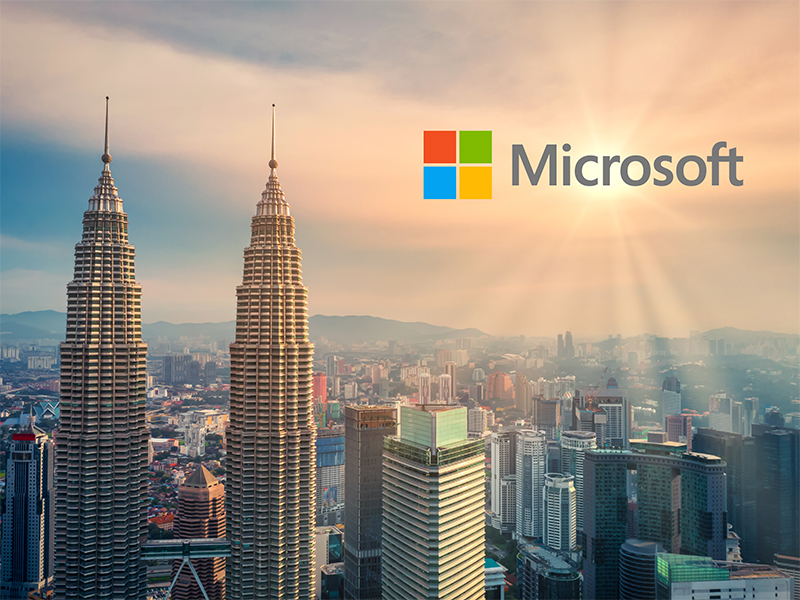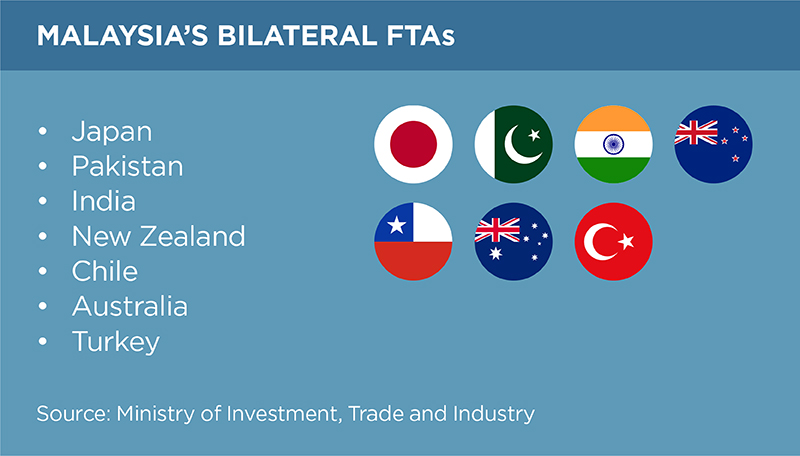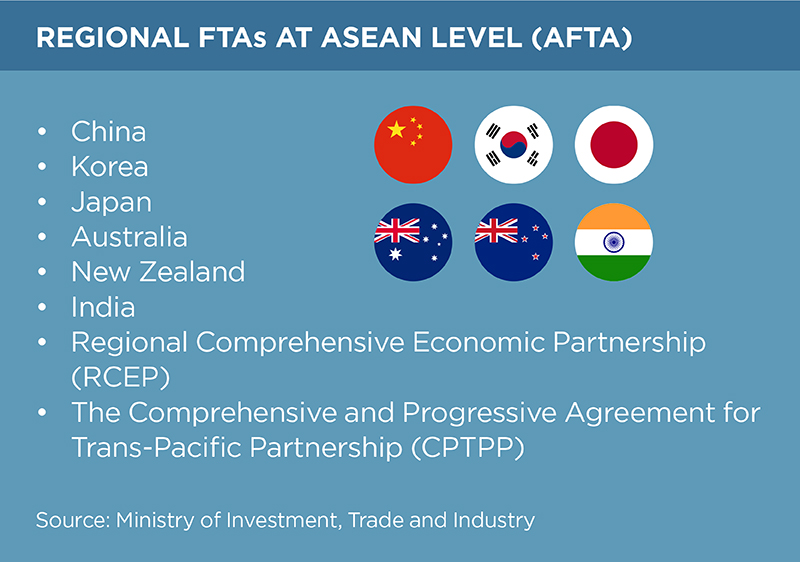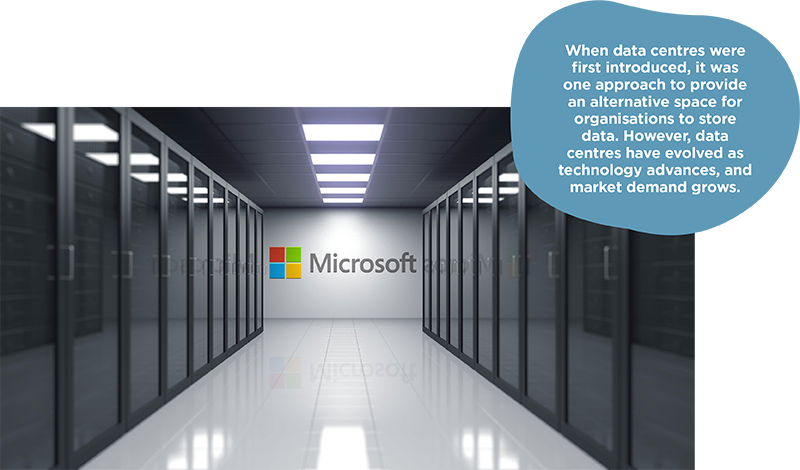
For decades, Microsoft has recognised the immense promise in Malaysia with its economic and technological growth and aims to bring innovation to new heights.
In this interview, K Raman, the Managing Director of Microsoft Malaysia, unveils the company's journey in expanding its footprint in the country and the plan to bolster partnerships on our shores.
What drew Microsoft to Malaysia?
Microsoft set foot in Malaysia more than 30 years ago, in July 1992. Malaysia is a rapidly developing country with a promising economic and technological growth outlook. In 2021 alone, the information and communication technology (ICT) industry contributed 23.2% to the nation's GDP, amounting to RM359.3 billion, representing a 12.1% growth from 2020.i
The government's push for digitalisation is clear – particularly with the Malaysia Digital Economy Blueprint, which looks into growing the local economy through digital technology, including building a digital government, fit-for-purpose digital talents, a digitally inclusive society, and a safe and secure digital environment. Furthermore, the government's visionary approach extends beyond economic growth, as introduced in the Malaysia Madani framework, which champions inclusive and sustainable development.
Geographically, Malaysia is situated in a strategic location between the Indian Ocean and the South China Sea, making it well-serviced by primary air and shipping lines. Malaysia has a highly diversified economy and export structure and a supportive labour market – the overall secure economic foundation was what drew us here too.
On top of that, Malaysia has already signed and implemented various free trade agreements (FTA).


With its diverse culture, Malaysians are multilingual and multiracial, presenting more perspectives and opportunities for an inclusive and innovative workforce. To realise this, expanding our presence was a crucial step forward. Still, beyond that, we want more people to discover and enjoy the benefits of technology together – and we believe this can be brought to life in Malaysia.

How have the Malaysian government and key Malaysian Government agencies such as MDEC facilitated Microsoft's journey in Malaysia?
The government has consistently taken action as part of its push to improve Malaysia's value proposition in the digital economy. The government, through its various agencies has also been supportive in enabling the private sector, including Microsoft, to partner together and build Malaysia's digital ecosystem – both from a tech infrastructure, adoption of tech tools, and producing the digital capabilities of Malaysians to be ready for the digital economy.
Our relationship with MDEC started a while back. We have just collaborated with MDEC for the 'Highway to 100 Unicorns', and more recently, we also collaborated on an upskilling programme via Let's Learn Digital. Our work together with key Malaysian Government agencies such as MDEC is not only aligned with our commitment to facilitate the transition to the cloud, but more importantly, collaborations play a crucial role in expanding our commitment and ensuring that once our data centre region is available, more people and organisations can leverage cloud services in the nation's growing digital future.
How has Malaysia's data centre industry evolved over the years Microsoft has been here? What are some of the areas in Malaysia's data centre ecosystem that have room for improvement?
According to Arizton's latest research report, the local data centre industry is expected to grow at a CAGR of around 7% during 2022-2027, with over US$2 billion to be invested. In addition, tax benefits by the government have encouraged investments by the hyper-scale and co-location operators. Such initiatives have enabled the development of data centres in free trade zones. On a regional scale, Southeast Asia is witnessing data centre investments across multiple cities. An analysis by MIDA showed that Malaysia is a key market due to the sheer scale of the opportunity.

Local data centre infrastructure supports and stimulates economic development for both customers and partners alike, enabling companies, governments, and industries to realise the benefits of the cloud for innovation and new projects, as well as bolstering the technology ecosystem that supports these projects. We are still in the early stages of our nation's journey with the cloud, but progress is certainly being made. To accelerate this transformation, a key action for the government is to evolve the regulatory and policy environment from one that permits cloud to one that actively encourages cloud adoption where appropriate.

One of the ways to accelerate adoption would be for the government to lead by example and spearhead a cloud-first approach by moving to the cloud and heightening awareness of its benefits, such as resilience, security, technology capabilities, cost, and energy efficiencies.
In addition, a regulatory regime for data, benchmarked to international best practices would encourage regional workloads to be hosted in Malaysia.
When data centres were first introduced, it was one approach to provide an alternative space for organisations to store data. However, data centres of hyperscale cloud service providers now offer capabilities that are much beyond mere storage. Today, they are larger, equipped with better security capabilities, and offer enhanced regulatory compliance. With Microsoft's upcoming data centre region in Malaysia, we will deliver our customers access to the full Microsoft Cloud.
What are Microsoft’s future plans with its data centres in Malaysia?
Once available, the data centre region in Malaysia will provide highly available, scalable, and secure cloud services across Malaysia with the option of customer data residency and reduced latency in the country.
Globally, we are also accelerating progress toward a more sustainable future by reducing our environmental footprint, accelerating research, helping our customers build sustainable solutions and advocating for policies that benefit the environment.
We have a long-term vision that we refer to as our own 100/100/0 commitment. Like other users, our data centres and our offices around the world simply plug into the local grid, consuming energy from a vast pool of electrons generated from near and far, from a wide variety of sources. So, while we can’t control how our energy is made, we can influence the way that we purchase our energy. By 2030, Microsoft will have 100% of our electricity consumption, 100% of the time, matched by zero-carbon energy purchases.

i Department of Statistics Malaysia (Information and Communication Technology Satellite Account 2021)